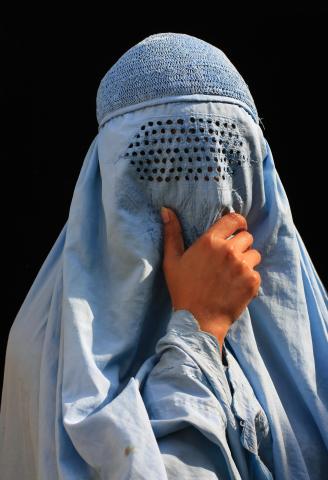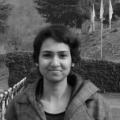Duing the Rio Olympics, images of Egypt’s athletes in full-body spandex (with player Doaa Elghobashy also wearing a hijab) competing against Germany’s bikini-clad team quickly swept through the internet. It’s only been since the 2012 London Olympics that relaxed rules have allowed for such diversity of clothing. The photographs echoed narratives of cultural freedom and showed how opposites can sometimes coexist quite peacefully.
But the images also brought back into light debates about the burqa ban across European countries like France and Belgium, reminding us how this particular veil is viewed more as a political statement than a piece of clothing.
In April 2011, France became the first European country to ban wearing the burqa and the niqab in public spaces. And now cities across the country, including Cannes and Nice, are banning the burkini — a swimsuit variant of the burqa.
Germany too intends to implement its own ban, this one on face veils in public areas that are “places where it is necessary for society’s coexistence.” Thomas de Maiziere, who proposed a partial ban said it is “not a security issue but an integration issue.”
shutterstock_290911193.jpg

But when implementing bans, many government officials do indicate the move is an attempt to curb radicalism. Indeed, when two Boko Haram suicide bombers detonated their belts in Chad’s capital last year, killing more than 20 people, Chad’s government banned women from wearing the face veil. Chad’s prime minister said the veil was being used as “camouflage” for militants. Cameroon also followed suit after suicide-bombings by two women dressed in burqas.
Concerns across the world in the wake of terror attacks and the fallouts that ensue are understandable. But these quarter-measure policies are dangerous: Such decisions turn out to be counterproductive because they further cast out minorities. Also, treating people and their cultures differently in hopes of equality and societal integration is simply flawed logic. What’s worse is that such legislations take away large chunks of time and effort, in both their formulation and their execution, which could otherwise have been spent on strengthening core security systems or on issues concerning women’s education or jobs and equal pay instead of their fashion sense.
shutterstock_295372526.jpg

image bird / Shuttesrtock.com
A common defense of a burqa ban is that Islamic communities are governed by strict rules, adherence of which comes through force and not by choice. To these minds, the religious requirement to wear a burqa is rooted in a theology that is oppressive to women. Arguments against the bans follow in the line of: Some women are comfortable in veils and for them, modesty is a choice. What’s missing in these arguments is the fact that after a point, it’s hard to distinguish between what is inherent and what is learned. Women in the West are taught to be comfortable in bikinis while some in the East grow up thinking that dignified women cover their hair with a scarf. As long as women (or anyone for that matter) are capable of using their discretion, it does not matter where that knowledge has come from.
One bright spot in the debate is Rachid Nekkaz, an Algerian human rights activist, who said he would pay the fines for any woman penalized for wearing the burkini in France “to neutralize the application on the ground of this oppressive and unfair law.”
He’s called the “Zorro of the niqab” and likens himself to Voltaire, telling the Telegraph: “Once I do not agree, I will fight to the death to give the possibility to these people to express their opinion or to dress as they please. That is freedom. It is a question of principle.”
It’s indeed a hopeful story. But we shouldn’t have to fight exclusivity and marginalization with a checkbook. Convergence of global influences, melting pots of cultures from all over the world is what nations should hope to be.
Got something to say about what you're reading? We value your feedback!

